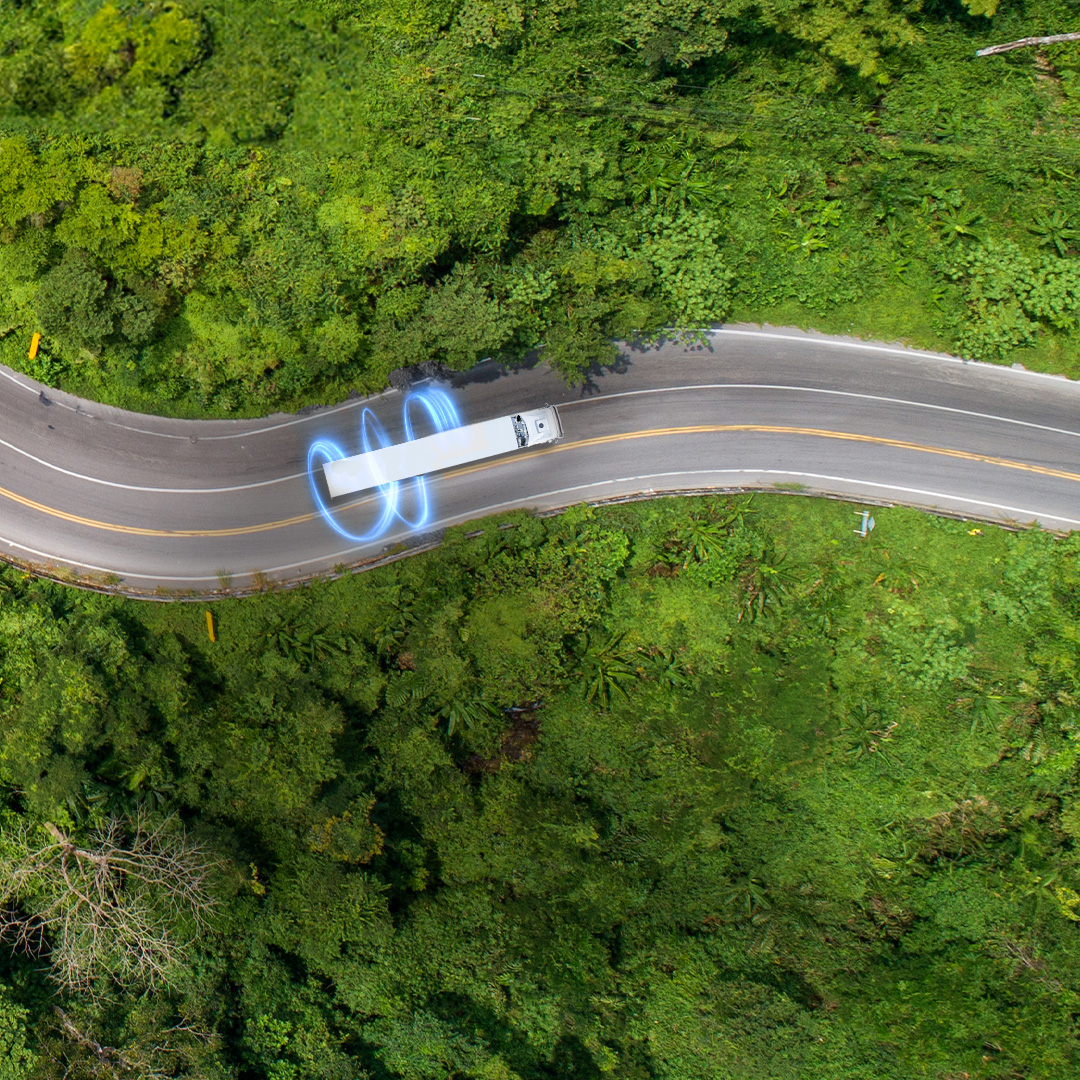
11th July 2025
Decarbonising the Food Cold Chain: The Path to a Sustainable System
Uncategorised
Poor cold chain infrastructure could be responsible for up to 620 million tonnes of food loss, or 1.8 gigatonnes of carbon dioxide equivalent (CO2-eq) annually.(1) Around 4% of global greenhouse gases (GHGs) are attributable to the cold chain highlighting the urgent need for a more sustainable approach to preserving and transporting perishable goods.(2) While reducing food loss and waste is critical, the primary focus must be on decarbonising the cold chain itself. By prioritising the reduction of electricity, fuel, and refrigerant emissions, significant progress can be made towards creating a more sustainable food system.
Harnessing the Power of Innovation
A key area of innovation is the development of electrified transport refrigeration solutions. Global climate innovator Trane Technologies and its brand Thermo King®, a leader in sustainable transport temperature control systems, have designed AxlePower. This innovative technology for trailer refrigeration units recovers energy from the vehicle during braking or going downhill, stores it in battery packs and reuses it to power the refrigeration unit, without impacting the truck’s fuel consumption. This technology is available now to be purchased or rented, saving on operating costs, while providing a sustainable cold chain solution.
Digital technologies also play a crucial role in optimising cold chain processes and reducing emissions. Advanced telematics and monitoring systems provide real-time visibility into the entire cold chain, enabling quick identification and resolution of issues that can lead to energy waste. By leveraging data-driven insights, stakeholders can streamline processes, eliminate inefficiencies, and ultimately decrease the carbon footprint of the cold chain.
Trane Technologies is at the forefront addressing these challenges. We are committed to advancing our 2030 Sustainability Commitments, including the Gigaton Challenge, which aims to reduce customer GHGs by 1 billion metric tonnes by 2030. This reduction equates to 2% of the world’s annual emissions or the combined annual emissions of France, Italy and the United Kingdom. To achieve this goal, Trane Technologies focuses on the electrification and decarbonisation of the cold chain.
Policy Frameworks as a Catalyst
Reducing food loss and waste, requires adequate policies. The European Union (EU) plays an important role in this regard: the revised Waste Framework Directive, for example, sets legally binding food waste reduction targets to be achieved by Member States by 2030.
Electrification of the cold chain and transport refrigeration also requires some policy adjustments to ensure the regulatory framework provides the necessary incentives for zero-emission technologies. Additional weight from installing electrification equipment in vehicles, for example, should not be included in the overall vehicle weight. Doing so, only serves to penalise freight operators who would have to reduce their payload to compensate for the weight of the battery and other components.
Moreover, electrified refrigeration systems should be included in the scope of all incentive schemes made available by EU Member States for electric light and heavy-duty vehicles. A favourable policy framework in this space could enable the EU to eliminate over 10 million tonnes of carbon dioxide emitted annually by transport refrigeration systems alone.
Measuring Progress and Driving Change
To gauge the impact of decarbonisation efforts effectively, it is important to measure progress in terms of emissions reduction. Key standardised metrics such as reduced emissions from electricity, fuel and refrigerants provide a clear picture of the improvements achieved. Regular monitoring and reporting on progress in reducing emissions are crucial for promoting accountability, benchmarking and continuous improvement.
Collaboration is also key to measuring progress and driving systemic change in the food cold chain. Governments, industry leaders, and consumers must work together to accelerate the transition to a low-emission system. Policy frameworks, financial incentives, and awareness campaigns can all help drive the adoption of sustainable technologies and practices. Cross-industry partnerships can foster the development of holistic solutions that cover the entire food supply chain from farm to fork.
Balancing Sustainability and Economic Viability
The pursuit of a decarbonised cold chain is not only an ecological imperative but also an economically sound strategy. Energy-efficient solutions can significantly reduce operating costs, improve performance, and enhance the competitiveness of businesses. However, the transition to a low-emission cold chain requires careful consideration of the economic implications. Policymakers and industry leaders must work together to develop strategies that balance sustainability goals with the need for more affordable and accessible food.
A promising approach is the introduction of circular economy principles in the food cold chain. By developing products and processes that minimise waste, maximise resource efficiency, and enable the reuse and recycling of materials, the environmental impact of the cold chain can be reduced while creating new business opportunities.
The Road Ahead
Decarbonising the food cold chain is a complex but necessary step towards a sustainable food system. The goal is clear: a food system that is fair to both people and planet.
The path is paved with challenges, but with the right strategies, technologies, and partnerships, these can be overcome, and a resilient, sustainable future can be shaped. The transition to a low-carbon cold chain requires continuous improvement, adaptability, and the commitment to push boundaries.
It is a demanding journey, but one that is unavoidable. With determination, innovation, and collaboration, we can create a future in which food is not only safe and nutritious but also environmentally friendly. The time to act is now – this opportunity must be seized for a more sustainable future for all.


